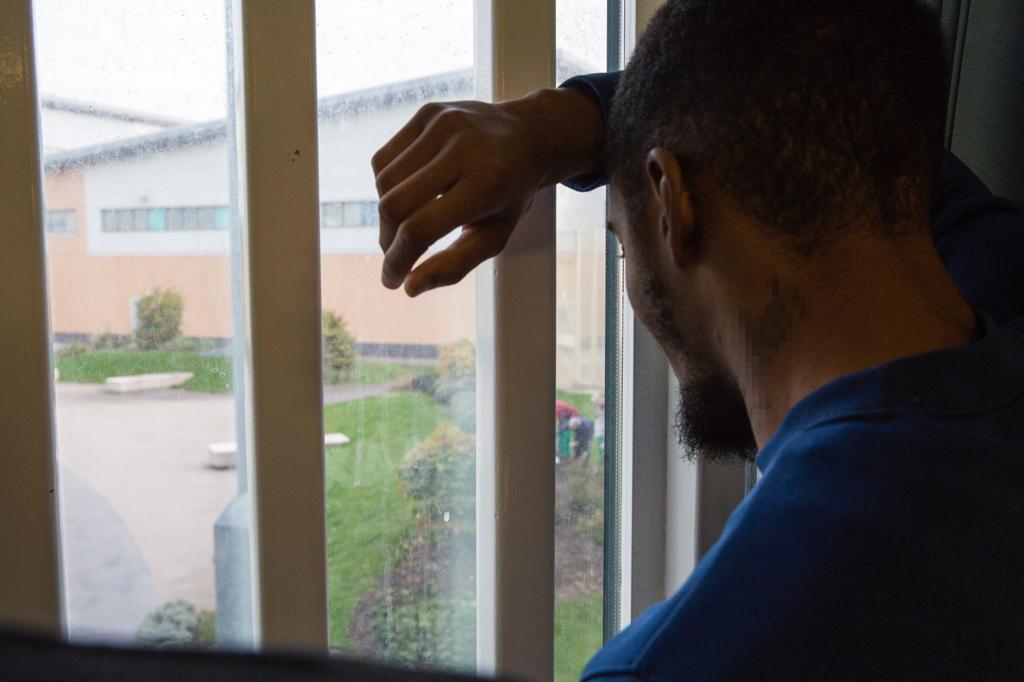Mental health provision in prisons is in a terrible state. So terrible that MPs across political divides are calling for ‘root and branch reform’. In a damning report by the influential Justice Select Committee current services are described as ‘disjointed and incoherent’.
The report passed by largely unnoticed in the media when it was published last week, with one story in the Morning Star. You could be forgiven for thinking we, the public, don’t care. You could be forgiven for thinking that when all of us are up against it, with so many young people in particular facing the mental health toll of disrupted education and social isolation, we, the public, don’t have the headspace or empathy to think of those behind locked doors.
Let’s stop there. There are glimmers of hope, signs that people do care about what happens to people in prison. Today, Spark Inside launches a new campaign focused on young people’s mental health and wellbeing in prisons. As part of the project we commissioned a new YouGov poll to find out what the public thinks. We were pleasantly surprised.
Almost three quarters of people (72%) think that, taking into account the different priorities in the prison system, there should be specific support for prisoners’ mental health and wellbeing.
The survey also asked people about the purpose of prison.
Almost two thirds (62%) say a top priority of prison is to rehabilitate. So people do care. They do care that people leave prison with the best chance of success, turning life around and leading crime-free lives.
So let’s not fall into the trap of saying ‘no-one cares’. They do.
A cross party committee of MPs care too. The committee’s inquiry discovered that only 10% of people in prison access mental health support, yet 70% of people inside are thought to have a mental health problem. Bob Neill, the Chair didn’t pull his punches, ‘We have a duty of care to those who are in prison and we must do more to live up to it.’ What’s also disturbing is the data is so lacking that, as Neill points out, the scale of unmet need is unknown.
At Spark Inside our coaches work with young people aged from 15-25 so they can realise their untapped potential. Our priority is to shine a light on getting the right wellbeing and mental health support for them. We know from neurological studies that particular challenges exist due to later psychological maturity, and that children in custody are three times more likely to have mental health problems than those in the general community.
The voices of young people, in or after prison, are at the heart of our investigation. Tyler, a 22 year old man who was recently in custody awaiting bail told us: ‘I think that’s one of the worse periods for my mental state, but in the year, I’ve kind of sucked it up and was like d’you know what it is? I started to read more, I started to exercise and then I have little episodes where …I go back into that sunken feeling, so I think I’d say I was feeling depressed. Especially I had a lot of other stuff going on outside of the case, so all of that adding onto the case made it bad, especially in lockdown as well, you couldn’t really do nothing.’
The message coming from what we’ve been told so far is that young people who ask for help in prison are told they don’t meet the criteria for appropriate services. Too often it’s a tick box culture.
In our project we will also focus on the impact of race. Young Black men are overrepresented in prisons. Young Black people are nine times more likely to be imprisoned than young white people. Our campaign will make constructive recommendations for tailored support for their mental health and wellbeing. Four years ago David Lammy in his review of 2017 identified ways to address the neglected specific needs of Black people in prison. Fast forward to 2021 MPs still conclude the Black population in prison are worst served for their mental health.
Nathan, a 26 year old Black man told us he couldn’t get mental health support: ‘A lot of people just need someone to vent to… like they don’t have to solve your problems, but I think just listen to it, just try and take your time with the person you’re dealing with in those situations, because there’s gonna be a lot of things going through whoever’s mind at that time, and they might not want to talk about it. It has to be genuine, people doing their jobs have really gotta care for people that they’re dealing with and have empathy.’
As well as the public’s views on mental health provision in prisons, we wanted to gauge people’s understanding of the background to race, mental health and young people in prison. 81% in the YouGov survey think experiences of racism can have a negative impact young person’s mental health and wellbeing. Perhaps post-Covid and in light of Black Lives Matter the British public is waking up to the deep-rooted issues around structural racism.
So, yes the public does care. They do care that the mental health and wellbeing of people in prison is taken care of and that rehabilitation is prioritised in prisons. MPs care. It’s time for wellbeing in prisons to be prioritised alongside physical health, time for professionals working in prisons to get the right guidance. The time is right for change.







